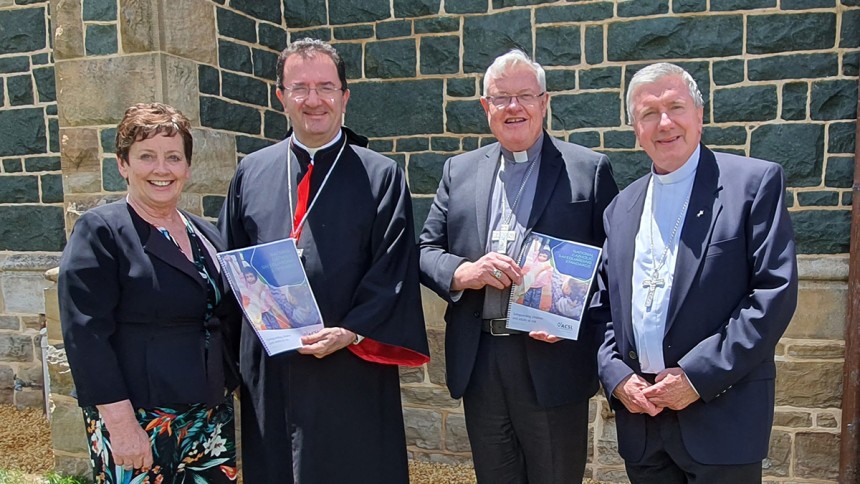
Dr Ursula Stephens, ACSL CEO; Bishop Antoine-Charbel Tarabay, Bishop of the Maronite Diocese of Australia; Archbishop Charles Balvo, Apostolic Nuncio; Archbishop Christopher Prowse, Archbishop of Canberra and Goulburn. Photo: Supplied/ASCL.
Australian Catholic Safeguarding Ltd (ACSL) has this week formally launched the second edition of the National Catholic Safeguarding Standards (NCSS) covering adults at risk as well as children.
ACSL has worked with the Australian Catholic Bishops Conference (ACBC), Catholic Religious Australia (CRA) and the Association of Ministerial Public Juridic Persons (AMPJP) to develop the NCSS Edition 2.
The release of NCSS Edition 2 comes just one week before the five-year anniversary of the Royal Commission into Institutional Response to Child Sexual Abuse’s final report.
ACSL Board Chair the Hon Michael Lavarch AO said that the adoption of the new Standards clearly demonstrates that the Church is vigilant of emerging safeguarding risks for everyone in Catholic communities, especially children and adults at risk.
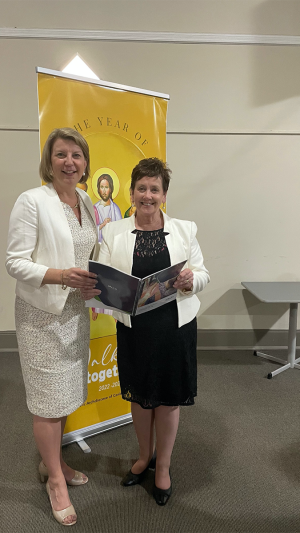 | 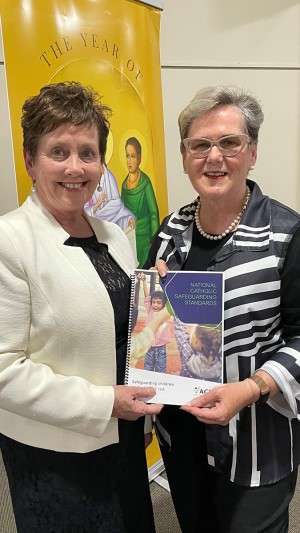 |
[Left] ASCL CEO Dr Ursula Stephens with Sally Egan. [Right] ACSL CEO Dr Ursula Stephens with Edmund Rice Education Trustee, Philomena Billington. Photo: Supplied/ACSL.
“The Standards address the safeguarding requirements of adults (with a focus on adults at risk) by both reflecting the duty of care owed to everyone, as well as recognising that there are particular risk-factors that cause some people to be more susceptible to abuse,” Mr Lavarch said.
“Including adults at risk within the safeguarding standards is a major milestone for the Church, as there are many groups running ministries with adults as well as children,” he said.
“The new Standards aim to address the power imbalances that can occur in a range of Church contexts, which can be a risk factor for abuse,” Mr Lavarch continued.
“Church organisations embraced Edition 1 of the Standards, and put measures in place to create safer environments for children, consistent with the National Child Safe Principles. They will now consider what they can do better to improve safety for adults at risk in our communities as well,” he said.
“Importantly, these Standards have been developed in consultation with Church Authorities, safeguarding personnel, and those with a lived experience of abuse.
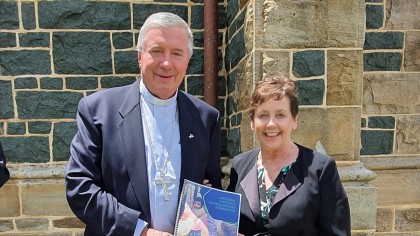 | 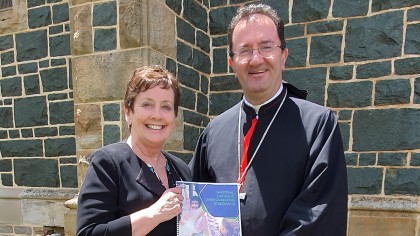 |
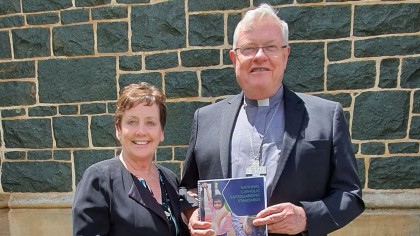 |
ACSL CEO Dr Ursula Stephens with Archbishop Christopher Prowse, Archbishop of Canberra and Goulburn. [Top Left] Maronite Catholic Diocese of Australia, Bishop Antoine Charbel Tarabay [Top Right] Archbishop Charles Balvo, Apostolic Nuncio to Australia. [Bottom]
“Addressing safeguarding requirements for adults at risk is part of the Catholic Church's ongoing response to the recommendations of the Royal Commission into Institutional Responses to Child Sexual Abuse.
“NCSS Edition 2 is one way in which the Church is being proactive in responding to the Royal Commission into Aged Care Quality and Safety and Royal Commission into Violence, Abuse, Neglect and Exploitation of People with Disability,” Mr Lavarch said.
Commenting on the launch of the Standards, Archbishop Timothy Costelloe, President of the Australian Catholic Bishops Conference said that collaboration had been a hallmark of the Standards development process.
“The Bishops Conference is pleased to endorse this second edition of the National Catholic Safeguarding Standards, which is the result of significant energy, mutual collaboration and discernment,” Archbishop Costelloe said.
“These Standards, broadening the scope to include adults at risk and refining our practices and procedures, are the latest milestone on the Church’s committed and ongoing journey of creating and maintaining safe environments for all people,” he said.
CRA President Fr Peter Jones OSA said: CRA supports every entity within the Church taking the necessary steps to make the Church a safe place for all.
“Particularly children and adults at risk, in a manner consistent with the National Child Safe Principles,” Fr Peter said.
“We continue to encourage all Catholic entities to take their responsibilities, legal and moral, very seriously in all their decision making,” he said.
ACSL will release guidance, learning materials and share resources and examples of good practice to address the new requirements of NCSS Edition 2.
